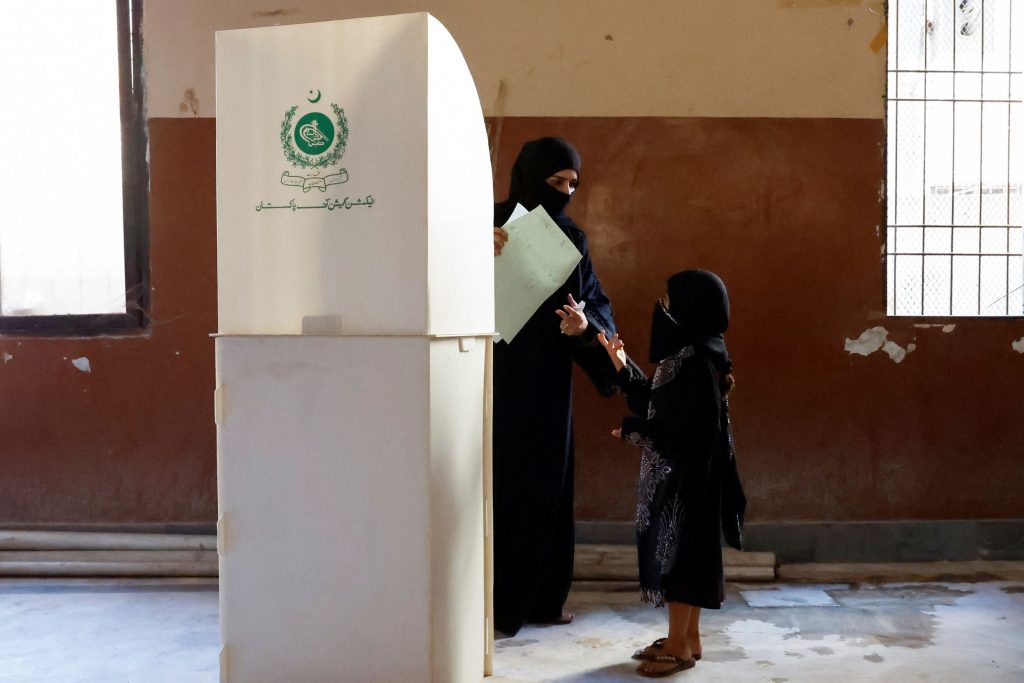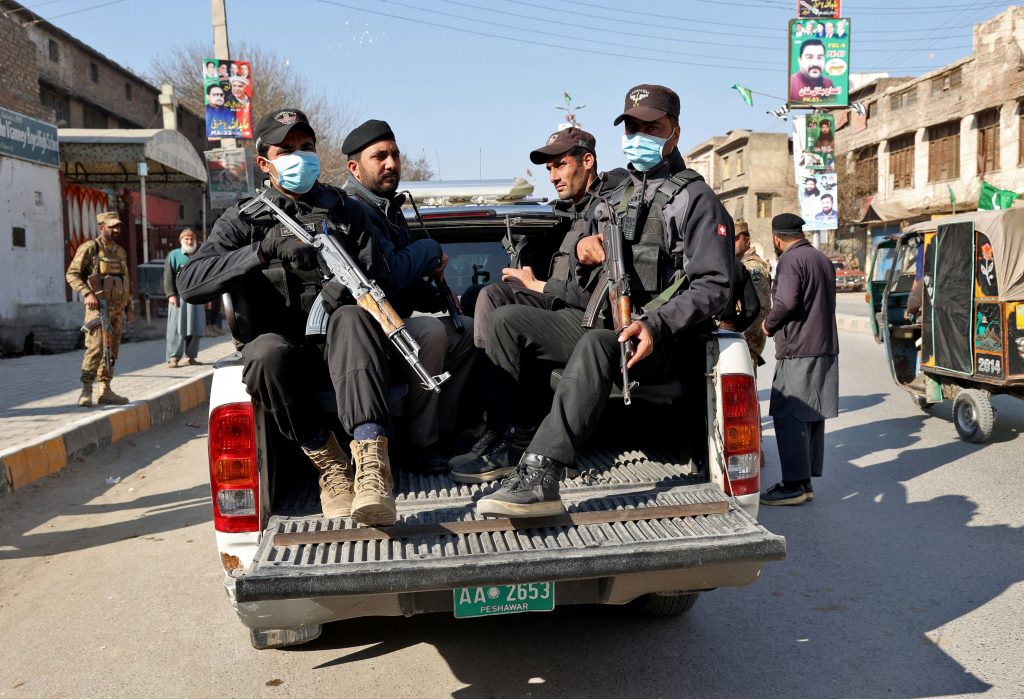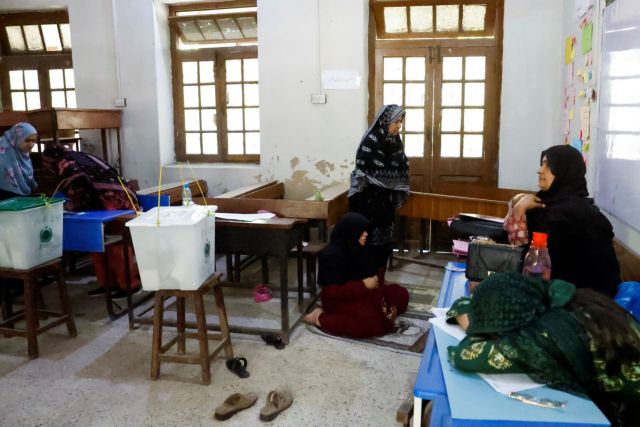ISLAMABAD, Pakistan—Pakistani authorities on Thursday suspended mobile-phone services across the country, citing recent terrorist attacks, as voting began in an election that is expected to test a fragile democracy.
Former Prime Minister Imran Khan , one of the country’s most popular politicians, is in jail, as are many members and supporters of his opposition party. Another former prime minister, Nawaz Sharif , is back from exile and may be headed for a fourth turn as Pakistan’s leader.
Khan’s Pakistan Tehreek-e-Insaf party says it has been systematically handicapped in the election campaign , with restrictions on its ability to hold rallies and its candidates and workers facing arrest. It blames the military for the crackdown.
Pakistan’s military has admitted to interfering in the country’s politics in the past, but says it no longer does so.
Civil-society groups and political analysts say the hurdles faced by the party have cast doubt among voters about the fairness of the election in a country that is in its longest period of elected rule, after decades when civilian governments were disrupted by military intervention.
More than 600,000 members of the army, paramilitary and police are being deployed for voter security during the polling, the government has said.
On Wednesday, two bombings at the election offices of two candidates in the remote western province of Balochistan killed at least 22 people, local authorities said. The Islamic State militant group claimed responsibility for both blasts.
Thursday’s phone-service outage will make it harder to monitor polls and flag concerns, party and civil-society activists say.
At the last election, in 2018, the Election Commission’s vote-counting computer system went down for hours, in what many believed was an attempt at manipulating the outcome. The commission said at the time that the outage was because of a technical fault.
Sikander Sultan Raja, the country’s chief election commissioner, said Thursday that the system for tabulating the vote doesn’t depend on phone or internet signal, and won’t be affected.
“Elections will be free and fair,” said Raja. “Voters will be free to cast their vote for their chosen candidate.”

A woman voter speaks with her daughter as she is about to cast a vote during the general election in Karachi, Pakistan February 8, 2024. REUTERS/Akhtar Soomro
However, cellphone service is required for people to use the commission’s text-message-based service to check the location of the polling station they must use. Many voters are finding that their registered voting location has changed in this election, groups monitoring the polls said.
Khan’s party condemned the suspension and appealed to the public to remove passwords from their home Wi-Fi and elsewhere to allow those nearby to access the internet. “This is a cowardly attempt by those in power to stifle dissent, manipulate the election’s outcome, and infringe upon the rights of the Pakistani people,” the party said.
Khan was arrested in May and is barred from running. Just days ahead of the vote, he was convicted and sentenced on charges of disclosing official secrets, corruption and marrying in contravention of Islamic law.
Ghulam Mujtaba, the owner of a shop selling yogurt in the northern city of Rawalpindi who supports Khan, said he believed that the authorities were trying to ensure the election of Sharif.
“They are trying to disillusion us, scare us, but the youth has learned the truth,” said Mujtaba, a 45-year-old shopkeeper. “The youth aren’t going to get scared.”
Sarwar Bari, national coordinator at Pattan, which is part of a network of nongovernmental organizations monitoring the vote, compared sentiment around the election to a poll in 1977 when a landslide victory by one party was followed by rigging allegations and then a coup.
“There is a lot of anger,” said Bari.

Police officers stand guard in a vehicle outside a polling station during general election, in Peshawar, Pakistan, February 8, 2024. REUTERS/Fayaz Aziz
Many voters are hoping that the polls will restore some stability to the nuclear-armed country, which has seen political and economic turmoil since Khan was ousted as prime minister by a parliamentary vote in 2022, following tensions with the powerful military over his governance.
Sharif is pledging to revive economic growth, while the pitch from Khan’s party is fighting corruption and the dynastic politics of the other parties.
“Don’t let the fraud come back to power,” Sharif said of his opponent, at his last rally of the campaign Tuesday, in a muted campaign of short speeches that kicked off just three weeks before the vote.
Sharif, a three-time prime minister, returned to the political fray after courts overturned the corruption convictions that had sent him into exile.
But it is unclear that Sharif’s Pakistan Muslim League-N will win a clear majority, making it likely that another potentially shaky ruling coalition lies ahead. That could make it harder for the next government to put a faltering economy on a more solid footing and provide people with a respite from inflation running at 30%.
If Sharif’s party has to rule in a coalition, analysts say, the prime ministership could be passed to Sharif’s brother and loyal lieutenant, Shehbaz Sharif , who is considered better suited to working with other parties.
A third key contender is the Pakistan Peoples Party, led by Bilawal Bhutto Zardari , who heads a party founded by his grandfather, the prime minister executed after the 1977 coup.
Khan, in a message delivered from his jail cell through his lawyer, has urged his supporters to remain peaceful, but to go out to vote. A high turnout could favor Khan.
Write to Saeed Shah at saeed.shah@wsj.com



